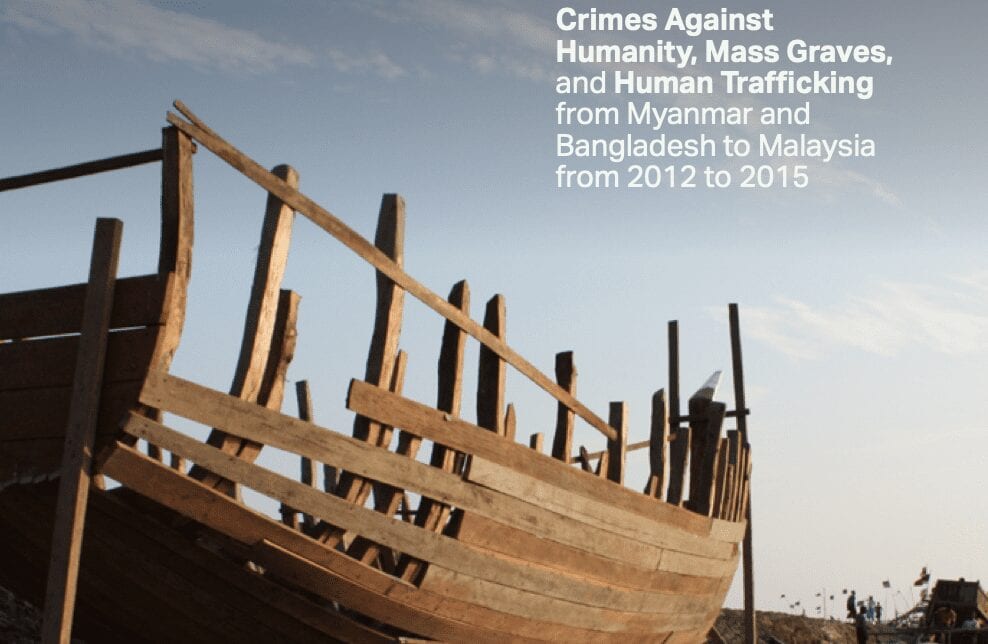
Sold Like Fish: Crimes Against Humanity, Mass Graves, and Human Trafficking from Myanmar and Bangladesh to Malaysia from 2012 to 2015
On April 30, 2015, Thai authorities announced the discovery of a mass grave in a makeshift camp in a forested area near the Malaysian border. The grave contained more than 30 bodies of suspected victims of human trafficking believed to be Rohingya Muslims and Bangladeshi nationals. Less than one month later, on May 25, the Royal Malaysian Police announced the discovery of 139 graves and 28 suspected human-trafficking camps in Wang Kelian, Perlis State, Malaysia.
Rohingya Muslims have faced military-led attacks and severe persecution in Myanmar for decades. Fortify Rights, the United Nations, and other organizations determined that there are reasonable grounds to believe that the Myanmar authorities committed genocide against Rohingya—a crime that continues to today. These crimes forced hundreds of thousands of Rohingya refugees to flee the country in recent years. Most fled with hopes of finding sanctuary in Bangladesh and Malaysia, the nearest predominantly Muslim countries. This report documents how a transnational criminal syndicate—a group of individuals or organizations working together for common criminal interests— in Myanmar, Bangladesh, Thailand, and Malaysia preyed on Rohingya refugees, deceiving them into boarding ships supposedly bound for Malaysia.
Motivated by profit, between 2012 and 2015, a transnational criminal syndicate held Rohingya as well as Bangladeshis at sea and in human-trafficking camps on the Malaysia- Thailand border. Traffickers provided their captives with three options: raise upwards of 7,000 Malaysian Ringgit (US$2,000) in exchange for release, be sold into further exploitation, or die in the camps. Members of a syndicate tortured, killed, raped, and otherwise abused untold numbers of men, women, and children, buying and selling them systematically in many cases, in concert with government officials.
Days after the mass-grave discovery in Thailand in 2015, Thai authorities arrested a Rohingya man from Myanmar named Anwar, also known as Soe Naing, for alleged involvement in a human-trafficking ring. Thai authorities went on to arrest 102 other suspects, including senior Thai government officials.
Thai authorities then began the largest human-trafficking trial in the history of Southeast Asia. On July 19, 2017, a newly established, specialized human-trafficking court in Bangkok convicted 62 defendants for crimes related to the trafficking of Rohingya and Bangladeshis to Malaysia via Thailand. Those found guilty included nine Thai government officials, including Lieutenant General Manas Kongpaen, a military general who reportedly received approximately US$1 million (3.49 million Malaysian Ringgit) in profits from the trafficking trade, including payments amounting to more than US$400,000 (1.39 million Malaysian Ringgit) in just over one month alone.
Read more here.
